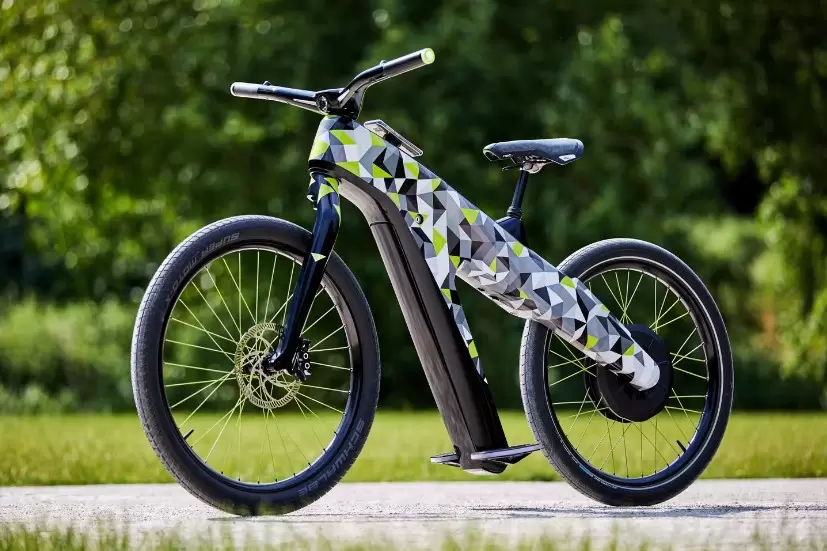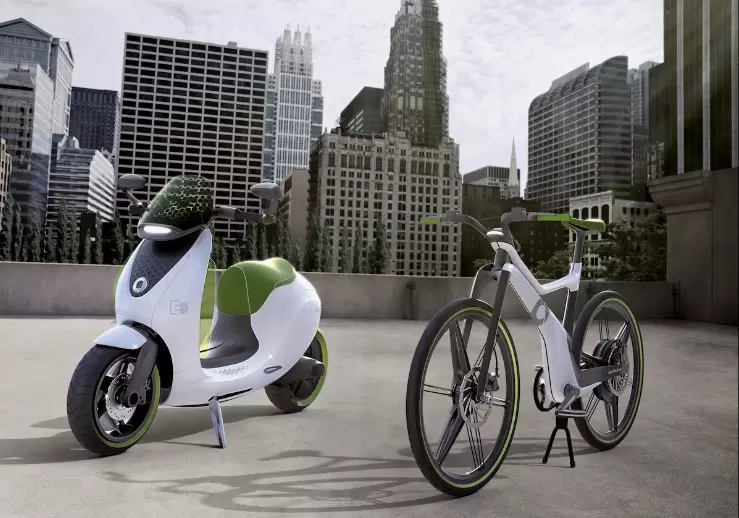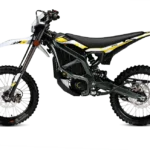Electric Scooter need to be registered in the United States?
Electric scooters have grown exponentially in recognition in recent years, particularly with younger crowds residing in town areas. Their compact length, affordability and environmentally pleasant electric powered power lead them to attractive alternatives for each brief distance commuting and leisure use.
But alongside this expanded adoption has come more confusion surrounding the complex felony and regulatory panorama around electric powered scooter usage and registration requirements in exclusive parts of the USA.
In this in intensity manual, we intention to break down all of the critical records you want to understand approximately electric powered scooter registration laws based totally for your kingdom and specific locality inside the united states. By understanding the nuances of regional statutes, riders can best ensure their safety and compliance on the roadways.
State-Level Registration Variances:
In terms of electric scooter registration regulations, the guidelines can vary quite depending on which of the 50 US states you are living in.
A few locations have extra stringent conditions and licensing mandates, while others take a greater lenient approach with fewer formal regulations. Let’s examine registration requirements in several representative states.
California:
As one of the earliest adopters of the electric scooter era and shared micro-mobility services, California unsurprisingly has some of the most definitive registration statutes on document.
In the Golden state, any electric powered scooter capable of accomplishing speeds over 15 mph have to entire a safety inspection and be registered with the branch of Motor automobiles (DMV) as a class 1, 2 or three electric powered bicycle.
This entails paying licensing fees ranging from $24-38 depending on maximum speed and properly displaying registration tags. Those caught riding unregistered vehicles faster than 15 mph can face punishments like impoundment and fines up to $200.
Texas:
Within the Lone Star State, electric scooter registration policies differ at the municipal level rather than being uniformly mandated provincially.
Cities like Austin and Dallas require e scooters with top speeds over 20 mph to complete annual registration ticketing through local authorities for approx. $15-30. However unincorporated jurisdictions and smaller towns in Texas lack statutory definitions that necessitate licenses.
Florida:
Offering a glimpse of less restrictive legislation, Florida does not currently enforce any statewide registration demands for electric scooters.
Under the Sunshine State’s transportation code, battery powered kick scooters are categorized as “motorized bicycles” exempt from licensure as long as operators abide by general traffic statutes. Still, incorporation of electric micro-vehicles into the traffic mix will likely spur revised regulatory schemes.
From these illustrations, it’s evident registration responsibilities are non uniform across America. Location specific research remains paramount for any electric scooter rider.
Harsher penalties exist in certain governed regions, while others afford more liberties devoid of bureaucratic hurdles. Knowing your rights and obligations keeps all road users safe.
Nuanced Municipal Statutes:
Beyond state level statutes, many major US cities have issued their own complementary sets of electric scooter bylaws. These municipal ordinances often focus on permitting programs, designated riding areas, and oversight of shared rental fleets in densely crowded downtown zones. Let’s analyze sample municipal registration directives.
Los Angeles, California:
As the second most populous city in the US, Los Angeles enacted an expansive electric scooter pilot initiative in 2018 which led to permanent guidelines.
Here, privately owned scooters capable of 15+ mph require one time $130 registration with the Department of Transportation, plus completion of an online safety exam. Failure to comply can draw $200+ penalties from police.
Chicago, Illinois:
While personal electric scooters escape registration under Chicago municipal code, the city closely monitors companies operating shared electric bikes and scooters through their Divvy bike share concession.
Only permitted firms like Lime and Spin receive authorization to deploy fleets across Chicago streets and parks following quarterly $5,500 licensing dues.
New York City, New York:
As the most populated metropolis, New York established controls for both rental services and privately owned models. The latter type escapes registration as long as top speeds remain under 20 mph per New York State Vehicle and Traffic Law § 1236. However, businesses renting out scooters must apply for permits overseen by the DOT.
As seen here, dense urban jurisdictions often regulate electric scooter use separate from statewide regulations to better integrate micro mobility amenities within tight downtown infrastructure. Always check your municipality’s unique ordinances for clarification, not relying solely on surrounding region policies.

Rental Versus Personal Scooter Classifications:
While state and local laws establish general frameworks, another crucial dividing line surrounds electric scooter possession whether rented through popular firms or personally acquired. Ownership status directly impacts which registration directives legally bind the operator.
- Rental Scooters: Companies like Lime, Bird and Spin handle all registrations, insurance and maintenance as required by jurisdictions granting their operating permits. Riders needn’t worry about individual licensing paperwork.
- Personal Scooters: For consumers purchasing electric scooters on the open market, registration responsibilities fall squarely to the private owner. This demands carefully investigating home state and municipality stipulations we’ve reviewed to verify licensing obligations.
Ensuring clear understanding between rental versus owned classifications sidesteps potential registration confusion and associated penalties. Consult applicable local authorities with any uncertainty over registration duties for your individual situation.
Promoting Safe Riding Practices and Electric Scooter need to be Registered:
Besides legal technicalities, safety remains the paramount concern around electric scooter operation nationwide. Whether renting or personally owned, following basic precautionary guidelines protects both riders and the growing popularity of micro mobility.
- Always wear an approved bicycle or motorcycle helmet satisfying safety certifications like DOT or Snell standards. Head injuries comprise the bulk of electric scooter accidents.
- Dismount scooters on sidewalks and use designated bike lanes or roads intended for vehicles where possible per local statutes. Avoid congested pedestrian areas.
- Utilize front and rear lights or reflective gear if riding at night to increase visibility for motorists unfamiliar with scooter prevalence.
- Do not carry passengers or cargo obstructing handlebars that could affect stability or responsiveness at high speeds.
- Follow standard rules of the road like using proper hand signals, yielding to traffic, and never drinking alcohol or texting while operating any motor vehicle.
Promoting safety culture both protects individual riders enjoying the fun and freedom of scooters while assimilating them as legitimate transportation deserving roadway respect. Understanding regulations similarly builds good will between users and authorities crafting sustainable micro mobility frameworks.
Navigating an Evolving Landscape:
As the electric scooter craze endures, policymakers at every jurisdictional level actively modify guidance to properly integrate this emergent mobility sector.
Registration rules will undoubtedly transform further in response to shifting rider demographics, technological potentials like geo fenced speeds and coordinated lobbying from scooter sharing startups.
For now riders can maximize confidence operating within current laws by: carefully researching home location statutes distinguishing between rental owned classifications practicing safety first ethics and monitoring registration prerequisites for modifications.
Micro mobility fills an important niche in sustainable urban transportation, yet also warrants practical statutory control to strike a balance with innovation. An informed compliant community best assists ongoing policy development around these exciting technologies.
With any fast growing industry electric scooters naturally encounter growing pains amid integration questions like clear cut registration protocols. Yet by understanding nuanced regional policies and prioritizing public safety, enthusiastic riders and regulators can work in concert progressing micro mobility responsibly for the betterment of all. Let’s navigate this landscape together courteously.

FAQ:
Q: Does an electric scooter require registration in Pakistan?
A: require registration.
Q: Does a 49cc scooter require a license in Pakistan?
A: These vehicles as per Pakistani law can’t be registered.
Q: Can a 14 year old drive an electric scooter in India?
A: The riding age limit for electric scooters in India is of the age 16 years and above.
Q: Do you need a license to drive an electric scooter in BC?
A: You do not need a license or insurance to operate an electric kick scooter.
Q: How fast is a 250W electric scooter?
A: 15.5 miles per hour.
conclusion:
In conclusion, navigating the regulatory landscape of electric scooter usage in the United States reveals a complex patchwork of state and municipal laws. While some states like California impose strict registration requirements, others such as Florida have more relaxed rules. Municipalities like Los Angeles and Chicago further refine these regulations, especially concerning rental fleets versus personal ownership. Amidst these variations, promoting safety remains paramount, with guidelines emphasizing helmet use, proper riding locations, and adherence to traffic laws. As this evolving industry continues to integrate into urban mobility, understanding and compliance with local statutes will be crucial for both riders and authorities alike.

With over 9 years of dedicated experience in the automotive industry, I am passionate about all things automotive. My journey began with a deep curiosity for automobiles, which led me to delve deeper into their mechanics, technology and trends. My expertise spans various aspects of the automotive world, from the latest electric vehicles to classic car restoration techniques. Through my articles, I aim to share my knowledge and insights, helping readers stay informed and inspired in the fast-paced world of the automobile.










